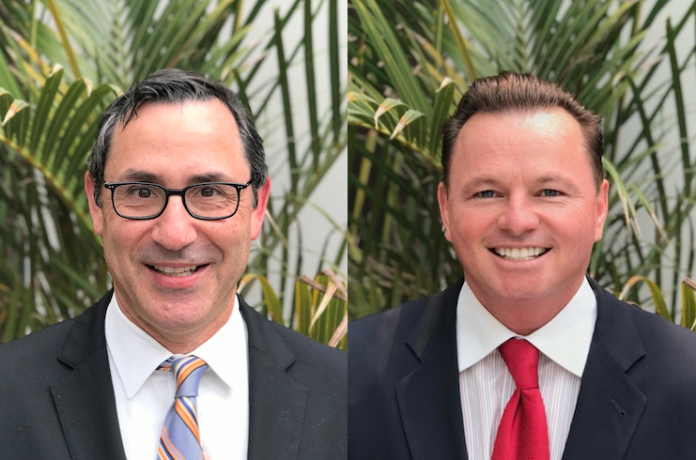Tim Muir, chief development officer for TPG Hotels and Resorts, and Robert Leven, chief investment officer, told LODGING that the time is right for TPG to grow by pivoting more decisively from the development roots it established some 63 years ago to become more heavily involved in third-party management, including through strategic acquisitions. They say the opportunities they are considering will be directed at the kinds of properties that fared best through the pandemic and align with their portfolio and expertise: leisure-oriented independents.
Established in 1958 by armed forces veterans Eve and Armond Procaccianti, the company, Muir describes, “began as a stereotypical builder, owner, and developer and has done about $10 billion worth of real estate in construction, but, as I see it now, I think the winds are right behind us now for acquisitions, not only in assets but also in management.”
He says insights based on the company’s six decades of investing in hotel properties inform the approach they are taking now. “We view investments through an owner’s lens and look for companies whose core values and culture are like our own. We know who we are and what we’re good at. Full service is the core of what we do, but we have also built numerous limited-service hotels like Residence Inns and Courtyards by Marriott, and also have about 17 independents in our portfolio.”
Leven says, even before the pandemic, the company had been moving toward acquiring leisure-oriented independent hotels for a variety of reasons. “We just didn’t feel the brands added value to some kinds of destination properties, so we bought a collection of properties in Nantucket and on Lake Winnipesaukee in New Hampshire, and a resort and marina on Block Island in Rhode Island. We also just closed a few months ago on a property Port Jefferson Island with a marina and independent restaurant, plus other food and beverage,” he explains.
Both describe something of a self-reinvention that they say is most of all related to where the company is in its life cycle. “We want to take the value of what we think exists with our operating platform and grow and expand that, as opposed to just continuing to be in this little bandwidth and run our own hotels. We think there’s an opportunity to spread that expertise out,” says Leven.
They aim to do this by concentrating more on third-party management—i.e., shifting the balance of their portfolio, which is currently 80 percent owned and operated and 20 percent third-party managed. “We’d like to flip that somewhat. We’ll continue to operate the hotels we already own and invest in, but we’d like to move the company’s footprint into being thought of more for third-party management,” says Leven. Their means to this end, they say, is through significant acquisitions.
Commenting on why the times favor this change to operation relative to ownership, Muir says, “We’re good at what we do and feel we have the wind at our back now. To use a nautical reference, when times are good, they are good for everyone: when the tide goes up, all the boats rise—small boats, sailboats, rowboats, and cruise ships. But at the end of the day, you have to operate, even when the tide goes down.”
Leven says the company intends to “stay opportunistic,” which he says means considering a variety of properties such as are already in its portfolio. While both say the state the pandemic was not a major influence on their current path, they do recognize that the growth plan they described may in fact benefit from opportunities presented by struggling operators. “Some of the smaller management companies weren’t really operators; they were developers who just fell into running hotels, so the pandemic was like a nuclear bomb. Many of them are wondering whether it makes sense for them now,” says Leven.











